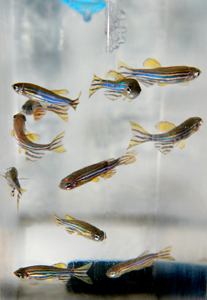Hemophilia of Georgia Funds New Researcher
Horizons in Hemophilia, August 2010
|
|
By Jeff Cornett RN MSN, Director of Training, Research, & Advocacy
Hemophilia of Georgia has awarded a Clinical Scientist Development Grant to Dr. Jordan Shavit, Assistant Professor of Pediatrics and Communicable Diseases at the University of Michigan (Ann Arbor). Dr. Shavit is studying novel methods for the identification of genetic and chemical modifiers of hemophilia. He has an M.D. degree and a Ph.D. (in Biochemistry, Molecular and Cell Biology) from Northwestern University. In addition to his research, Dr. Shavit sees patients in the Pediatric Hemophilia and Coagulation Disorders Clinic at the University of Michigan C.S. Mott Children’s Hospital.
How much a person with hemophilia bleeds usually matches up with whether he has a gene for mild, moderate, or severe hemophilia. However, this is not always the case. Some men with the gene for severe hemophilia rarely bleed, and brothers with the same hemophilia gene do not always bleed the same. The difference is believed to be caused by modifiers–other genes that affect blood coagulation processes and make a person less likely to bleed, such as ABO blood group. If other modifier genes can be discovered, it may lead to better treatment for hemophilia.
One of the major barriers to identifying modifier genes is that many individuals are required to statistically show that a particular gene is having an effect. It is nearly impossible to do in humans because of the many generations needed. Using mice, the research becomes possible but it is very expensive to breed and house the hundreds and hundreds of animals required. Dr. Shavit is overcoming this hurdle by studying zebrafish. One mating pair of zebrafish can produce hundreds of offspring each week in a small aquarium, and thus thousands of zebrafish can be studied in a few months. It would take years and much more money to do the same with mice.
Zebrafish have nearly all the same clotting factors that humans do, including factors VIII, IX, and von Willebrand factor. Baby zebrafish are also transparent, making it easy to identify internal bleeding. Once modifier genes are identified in zebrafish models, the corresponding human gene can be studied to see if it affects bleeding in people with hemophilia.
Hemophilia of Georgia’s Clinical Scientist Development Grants provide up to five years of funding. The grants are designed to allow a physician who has completed research training to advance to the status of an independent investigator. Our goal is for the achievements of these scientists to improve the lives of people with bleeding disorders. Since the grant program began in 2003, nine researchers have been funded.


